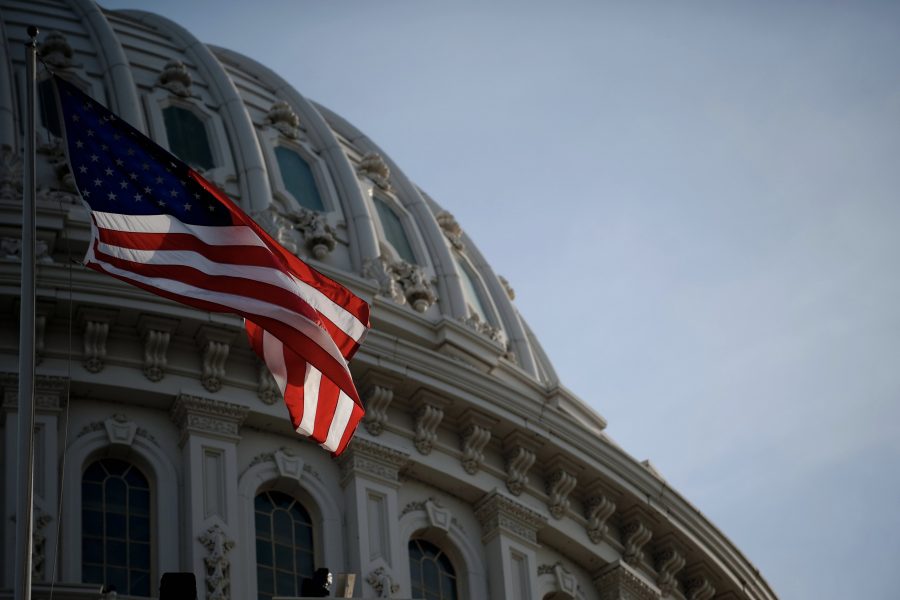Congress has voted to enact a $741 billion defense policy bill over the objections of President Donald J. Trump, who vetoed the long-running annual legislation on Dec. 23.
The Senate overrode Trump’s veto 81-13 on New Year’s Day, following the House’s 322-87 vote on Dec. 28. Their rare bipartisan move greenlighted billions of dollars for troop pay, weapons programs, and military construction, plus hundreds of provisions directing how the military should spend that money and detailing reports due to Congress.
It’s the first time lawmakers have amassed the two-thirds majority needed in each chamber to overturn a Trump veto. Six senators—including Republicans David Perdue and and Kelly Loeffler, who both face runoff elections on Jan. 5 to keep their seats in Georgia—and 21 congressmen did not participate.
An unsuccessful attempt to tie passage of $2,000 pandemic aid checks to Americans also slowed the NDAA’s progress, but did not derail it entirely.
“Not only does this bill give our service members and their families the resources they need, but it also makes our nation more secure—pushing back against China and Russia, strengthening our cyber defenses, and accelerating innovation into the technologies that will keep our children’s children safe,” Sen. Jim Inhofe (R-Okla.), head of the Senate Armed Services Committee, said in a Jan. 1 release.
The Fiscal 2021 National Defense Authorization Act allows $740.5 billion in spending for the Pentagon and other national security programs through Sept. 30, 2021. Negotiations encountered hurdles due to the coronavirus, which prevented lawmakers from gathering in close quarters to discuss ideas like usual, as well as election-year politicking.
It hit last-minute challenges as Trump demanded Congress include an unrelated provision to end legal protections for social media companies. He also opposed the bill over its language to start the process of renaming military installations that honor Confederate icons, like Fort Bragg, N.C.
Enactment is a late win for the legislation that has now become law for 60 years running, and is touted as one of the most important bills Congress works on each year.
House Armed Services Committee Chairman Rep. Adam Smith (D-Wash.) called its support “a testament to the merits of this year’s bill.” That contrasts with the previous year’s NDAA that garnered unusually partisan votes because of disagreements over issues like nuclear weapons.
Trump’s 11th-hour opposition to the broadly popular bill threw a wrench into what is typically a smooth, if delayed, approval process. The President vetoed the NDAA hours before it would have automatically taken effect at midnight Dec. 24 without further action from the White House. That prompted a holiday scramble to nullify his decision, while also trying to lock in a $1.4 trillion appropriations bill for fiscal 2021 and $900 billion in coronavirus pandemic aid.
Trump signed the spending package into law Dec. 27 as a government shutdown loomed. The authorization and appropriations bills come three months into the fiscal year they enable.
Congress granted most of the Department of the Air Force’s $169 billion wish list. The omnibus appropriations language provides $32.8 billion for Active-duty Airmen, $33.5 billion for Active-duty operations and maintenance, $45.3 billion for procurement, and $36.4 billion for research and development in the base budget. The Space Force’s base budget includes $2.5 billion for O&M, $2.3 billion for procurement, and $10.5 billion for R&D.
The Overseas Contingency Operations budget provides millions more dollars for counterterrorism and other missions outside of the base account as well.
Getting both sets of legislation across the finish line dispels concerns about how lawmakers would move forward with unfinished business after the new Congress began Jan. 3. Work is already underway on the same bills for fiscal 2022, to be tackled by a Democratic White House and a House and Senate that are both narrowly split.
